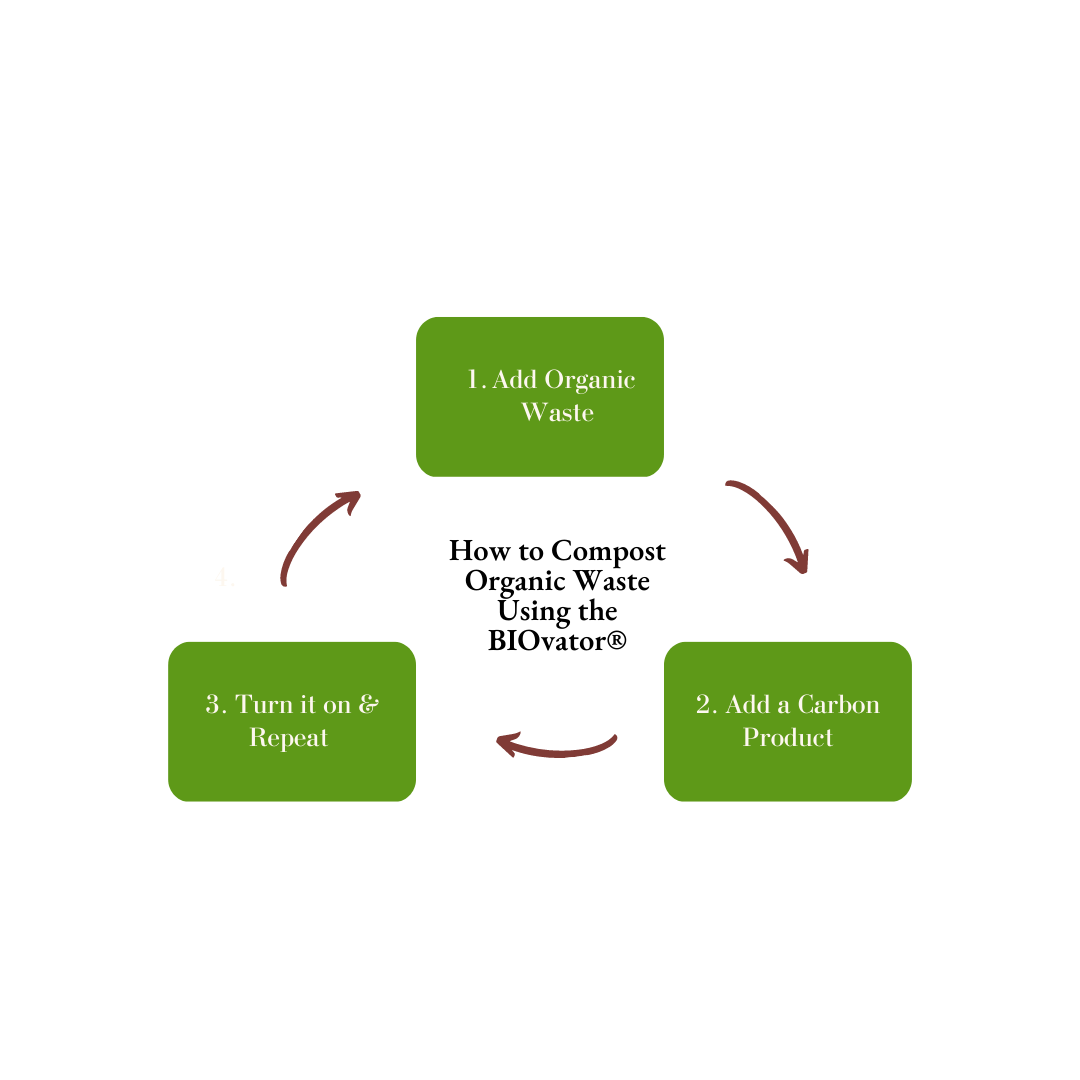How to Turn Organic Waste into Compost Using the BIOvator®
You can convert your organic waste into rich, nutrient-dense fertilizer with the push of a button using the BIOvator®. This biological process of recycling is called composting. Our group of 15 engineers have created the BIOvator® to compost organic waste without insects, odors, and rodents. The BIOvator® will turn your waste into compost in three simple steps.
What is compost?
Composting is the natural process of decomposing natural waste like vegetation, food, and mammals. Composting will speed up the process of decomposing organic waste by creating a warm environment to allow bacteria and microorganisms to do their job. The result once this process is complete is high-quality compost that can be used for many things like fertilizer, bedding for livestock, and soil enhancer.
What is the BIOvator®?
The BIOvator® is a combination of a device and a process targeting the quickest transformation of organic matter into consistent quality compost at the lowest possible cost and management effort. It is the only all-stainless steel, in-vessel composter on the market that is free of any plastic material that can warp and wear. It has been tested for unmatched durability and to produce consistent nutrient-rich compost.
Benefits of Composting
Composting organic waste on-site rather than throwing it away in the garbage saves the environment and saves money. It will also leave you with high-quality compost that you can use.
Composting using the BIOvator® reduces the risk of disease transfer and lingering odor. It can also eliminate leaching, groundwater contamination, and removes the threat of scavengers, rodents, and insects. It will also make winter composting easier and cuts down methane emissions from landfills.
Who can compost using the BIOvator®?
The BIOvator® was originally created to improve and facilitate outdoor composting for livestock farmers to help them manage their mortalities. The BIOvator® is now used by slaughterhouses, hospitals, universities, grocery stores, and restaurants. You can find the BIOvator® at The Forks Market and the University of Manitoba. Any business that produces organic waste can leverage the BIOvator®.
Step 1: Add Organic Waste to the BIOvator®
Simply open the door and place your organic waste in the stainless-steel drum. The BIOvator® has models that can compost 60lbs-1500lbs of organic waste every day and carry three sizes of drums (3ft, 4ft, and 5 ½ ft diameter).
Step 2: Add a Carbon Product
You can choose from any carbon product like wood shavings, leaves, lawn clippings, or food scraps. You will want to add .05 ft3 of shavings per pound of organic waste. The carbon-rich product will feed the microorganisms in your organic waste to help it break down.
Step 3: Turn on the BIOvator®
Push the button to turn the BIOvator® on and allow the combination of ingredients to be mixed at a high temperature of 130-160F (55-70C) to produce superior compost in 4-14 days. There is no need to monitor or interrupt the BIOvator®, it will do all the work for you. The Biovator® can be continuously loaded, the compost is automatically removed from the Biovator®. You do not need to wait for a batch to finish being processed to add more organic waste. As the drum rotates, paddles inside the drum are mounted in a helix spiral which auger compost to the discharge spiral/opening. When the Biovator® is operating at full capacity, compost will be constantly discharging out the end during rotation. The rotations are automatically initiated by a time clock – larger models operating at capacity would be set to rotate up to once per hour.
Composting organic waste doesn’t have to be hard, nauseating, or expensive when you follow our three simple steps. The BIOvator® is easy to use, eco-friendly and takes the chore away from traditional composting like incineration, rendering, and compost buildings. You can take the pain away from composting with our sealed and sanitary steel system. Contact our team and we would love to help you start composting your organic waste the right way.

